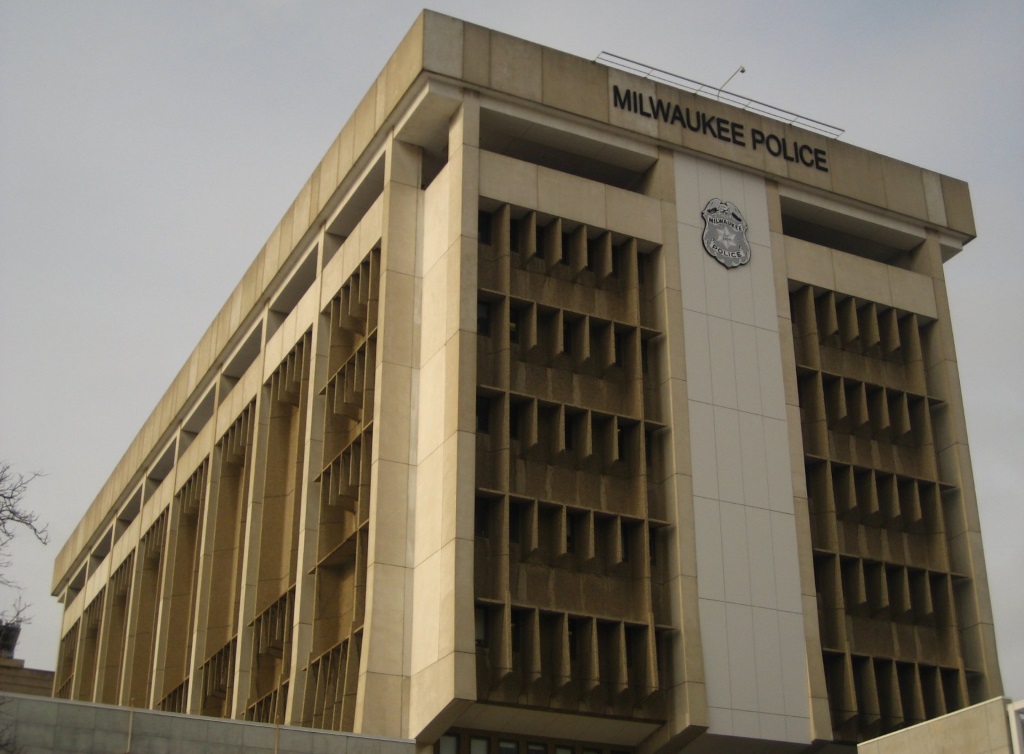Fire & Police Commission Is Too Lax
It has statutory authority to oversee Police Department’s operations, but isn’t doing so.
The Wisconsin State Statutes §62.50(1m), City of Milwaukee Charter Ordinances Chapter 314, and the Fire and Police Commission’s own rules and website all declare that the FPC is responsible for all aspects of the operations of the police and fire departments.
The reality is that at some point, whether by design, lack of resources, or lack of backbone, the FPC stopped monitoring the operations of the Milwaukee Police Department.
This was called out in the 2006 “Promoting Police Accountability in Milwaukee: Strengthening the Fire and Police Commission” report presented by the Police Assessment Resource Center (PARC), in the 2017 DOJ Collaborative Reform Initiative Findings and Recommendations and again in the ACLU “Stop and Frisk” Settlement Agreement and Court Order. You would think that, as a defendant under court orders to make significant changes in the way they monitor the MPD’s operations, that the FPC Board of Commissioners would have finally “gotten the memo.”
Unfortunately, most of the FPC’s commissioners are in a state of denial regarding their obligations to monitor the operations of the MPD. This was painfully evident during the hearing of FPC File no. FPC19193 regarding changes to SOP 120: Operating While Intoxicated, and SOP 660: Vehicle Pursuits at their May 16th regular meeting. I spoke during the public comments section of the meeting specifically challenging the use of drug recognition experts in SOP 120 by the MPD. Not only was the MPD trying to legitimize the use of pseudo-science in evaluating the impairment of vehicle operators, they were also trying to slip the use of DRE’s into the schools and into the context of any other criminal offense that includes the state of intoxication of the accused person as an element of the crime.
Commissioner Everett Cocroft also had doubts about the use of DREs and in the middle of the discussion, with many unanswered questions on the table, Commissioner Steven DeVougas interrupted the proceedings and made the stunning assertion that the FPC is NOT responsible for monitoring the operations of the Police Department:
“… the point of clarification, I think it’s probably gets into the policies versus operations aspect. The DRE was part of your operations, which is typically out of the purview of the Fire and Police Commission. So, it wasn’t anything unlawful on the department’s part, they’re just codifying it into a policy which brings it under our purview at this time.”
Commissioner Cocroft summed it up pretty well:
“It’s not in the policy and you’re already doing it, so you’re just adding what you’re already doing to the policy. We had no idea what a DRE was before y’all brought it here. You’ve pretty much been operating with these DREs without the knowledge of the Fire and Police Commission. If we struck it down, y’all could keep doing the same thing.”
This is the heart of the systemic problems we have with the Milwaukee Police Department: The FPC is NOT monitoring their operations. The MPD can do whatever it wants to so long as it does not attempt to bring it to the FPC for approval as a standard operating procedure. And, in cases like SOP 120, they can simply claim that they have been using drug recognition experts for many years. Nothing to see here folks, move along. Apparently the FPC’s research staff did not investigate the MPD’s assertions regarding the legitimacy of DREs. They did not investigate the lawsuits brought by the ACLU that are currently pending in Vermont and Georgia, challenging the use of DREs by law enforcement. The MPD did not need to present one shred of evidence to support its use of DREs beyond the fact that it’s been using them for years and its testimony is accepted in court.
Whether or not the FPC should have authorized the use of drug recognition experts by the MPD is debatable. What is not debatable is the way the FPC is shirking its duty to monitor the operations of the MPD. Commissioner DeVougas asserted that there is a “Chinese Wall” between FPC polices and MPD operations. In effect, he admitted that the MPD has carte blanche to do whatever it wants to so long as it does not attempt to get the FPC to sanction it in a standard operating procedure.
Yes, the FPC is badly broken!
Paul Mozina is a retired IT professional and an activist who has opposed the War on Drugs since the early 1980s.
This story was originally published by Milwaukee Neighborhood News Service, where you can find other stories reporting on eighteen city neighborhoods in Milwaukee.
Op-Ed
-
Wisconsin Candidates Decry Money in Politics, Plan to Raise Tons of It
 Dec 15th, 2025 by Ruth Conniff
Dec 15th, 2025 by Ruth Conniff
-
Trump Left Contraceptives to Rot; Women Pay the Price
 Dec 8th, 2025 by Dr. Shefaali Sharma
Dec 8th, 2025 by Dr. Shefaali Sharma
-
Why the Common Council’s Amended Budget is Good Policy for Milwaukee
 Nov 20th, 2025 by Alds. Marina Dimitrijevic and Russell W. Stamper, II
Nov 20th, 2025 by Alds. Marina Dimitrijevic and Russell W. Stamper, II























Thank you Urban Milwaukee for reprinting my article!
A couple things about my article above. In fairness, it is not balanced in that I did not highlight the good things the FPC is doing regarding testing and recruitment.
I have been following the FPC very closely since last summer and have spoken at almost every Regular FPC meeting since then. There are so many issues…
Please see the attachments for Common Council File no. 170937 which includes the questions I raised and the responses of FPC Executive Director La Keisha Butler
https://milwaukee.legistar.com/LegislationDetail.aspx?ID=3164663&GUID=C3BBFA49-88B9-49DA-A486-6DF3D4C1B42E
Below are some issues/thoughts/suggestions not included in the article:
Since 2009 and EVERY YEAR through 2018, the FPC Use of Force reports on the MPD show approximately 76% of use of force is against Black people. This needs to be investigated. What is the rate of use of force for every 100 White people involved in an incident versus the rate for every 100 Black people? Basic analysis like this is not being done by the FPC and people are not demanding that it be looked at either.
The FPC meetings are now on the City’s Legistar Calendar and I had to diligently follow up with the FPC to get my public comments made regarding SOP 120 added to the record: https://milwaukee.legistar.com/LegislationDetail.aspx?ID=3932664&GUID=7FA04078-0909-44FD-B446-0FA0C11DB053
There should be an SOP for the FPC that ALL documents submitted to them by the public at their Regular meetings be posted to the record. Having attended almost every Regular meeting since last summer I can attest to the fact that documents presented during public comments are not added to the record and, in most cases, no substantive reply is provided.
The FPC, despite the promise from Clifton Crump last July, does not respond to public comments in a consistent or thorough way. For example, I have been asking them to present a plan for how they will fulfill the Audit requirements THEY are obligated to perform as part of the ACLU Settlement Agreement and they simply ignore this. This was called out when the consultants hired to monitor the settlement were here in March. Yes, in addition to MPD and the Crime and Justice Institute doing their audits, the FPC is required to independently perform its own audits. Are they on track to accomplish this? How? Did they budget for it in 2020?
Every Regular FPC meeting should have a “Director’s Report” agenda item, where the Executive Director informs the public and the commissioners exactly what is going on.
The FPC Board of Commissioners needs to reassert it leadership over the FPC. As it currently operates, the Executive Director, who on paper is their chief of staff, runs the FPC setting priorities, controlling information flow and directing the activities of the staff. This leadership needs to come from the FPC Board, which should then direct the Executive Director to execute their directives. For example, Executive Director Butler presented the 2019 budget to the FPC Board literally a couple of days before the Common Council voted on it. The passivity of the Board of Commissioners must stop. And if Commissioners don’t have time to lead the FPC — they should resign.
In light of the 3 MPD members who were killed in the last year, the FPC and MPD need to revisit the Use of Force, Search Warrant and Officer involved Fatality SOPs. A new SOP needs to be created to formalize procedures for investigating the death of a member including involving an outside law enforcement entity. There should be an SOP controlling the use of Confidential Informants. State laws have changed regarding asset forfeitures and the MPD has not updated it’s SOP to reflect that.
The whole process of approving and updating SOP is very flawed. The Executive Director and Chair of the FPC Board can arbitrarily approve any SOP change made without informing the rest of the Commissioners or the Public. The FPC apparently cannot even be bothered to notify the public when SOPs are being administratively approved. No, we are advised to check the 120 SOPs online at the MPD’s website, individually opening each one to check its last revision date.
And as we saw in the case of SOP 120 Operating While Intoxicated, neither the FPC research staff nor MPD are required to present any evidence substantiating what they are proposing to do. At a minimum, every new or revised SOP brought before the Board should be accompanied by reports from the FPC’s research staff and supporting documentation from the MPD
The bottom line is that the quality of the FPC’s “Citizen Oversight”, will reflect the time and attention we all give it to make sure it performs its job.